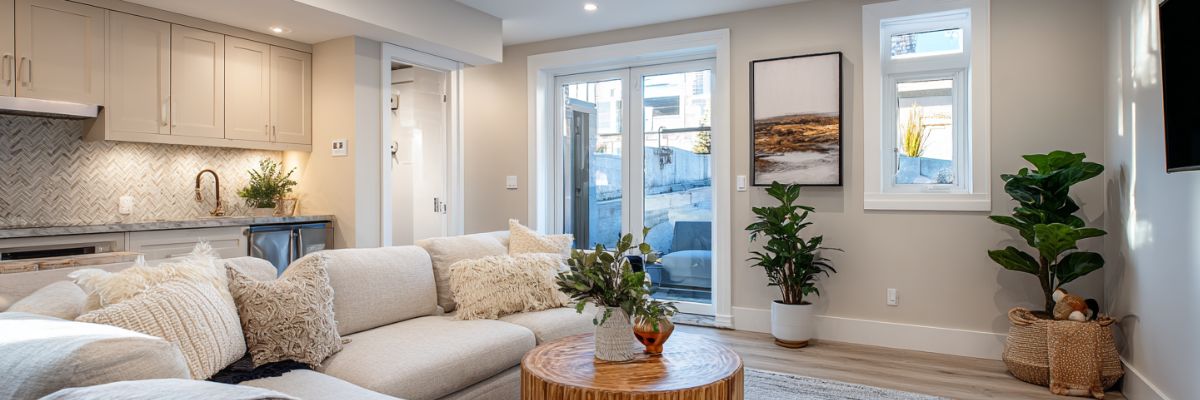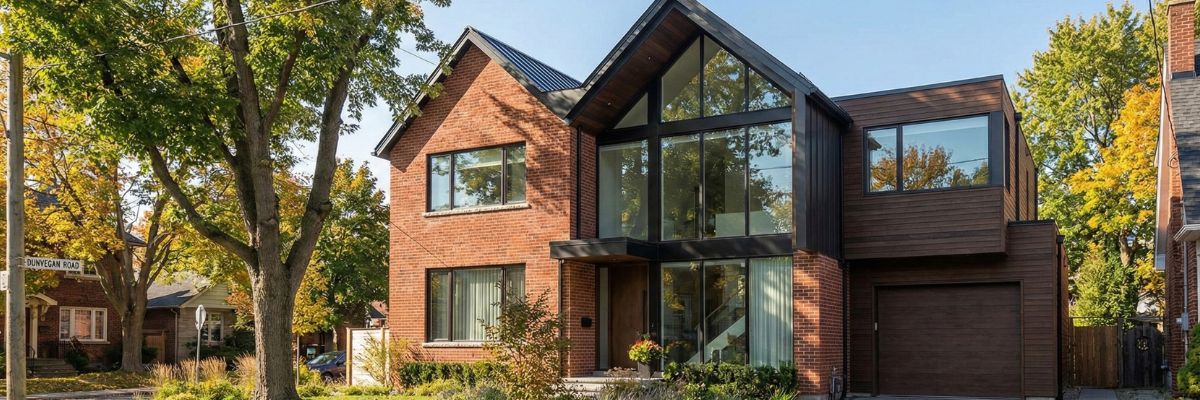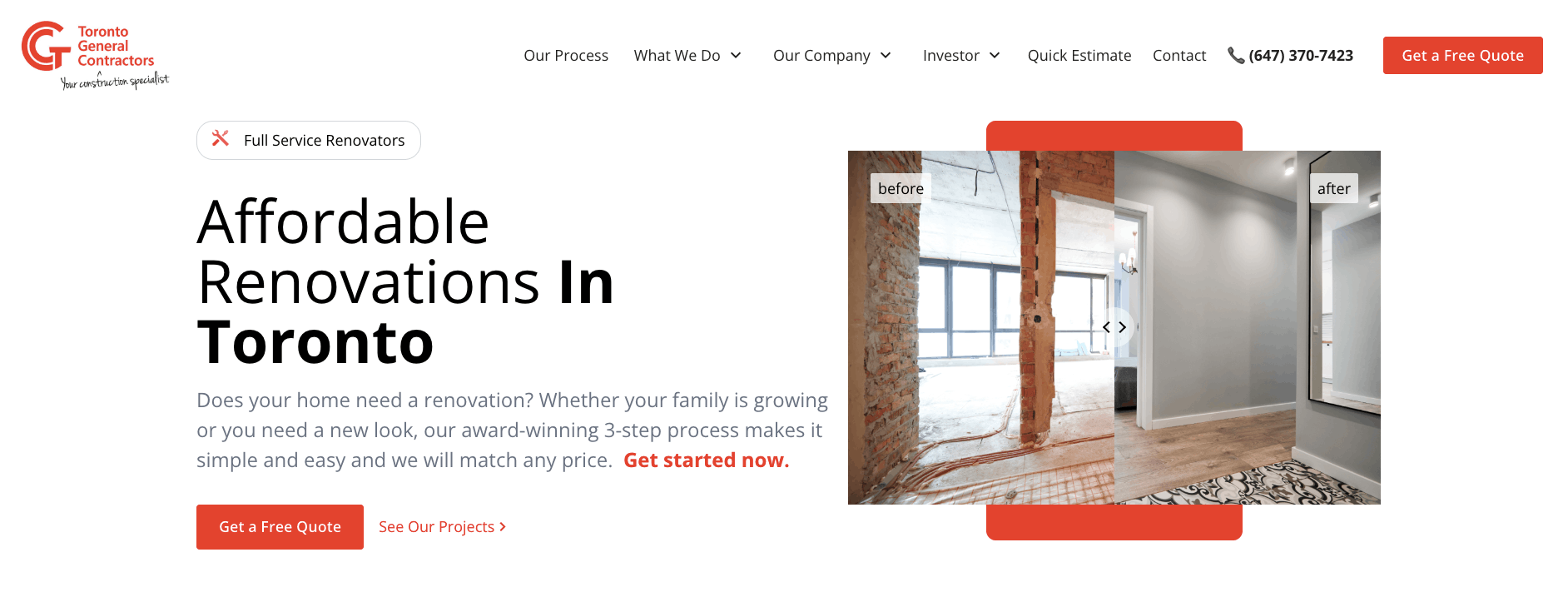What is the ROI of a Garage Addition In Toronto?
A garage addition in Toronto typically yields a 50% to 60% return on investment (ROI) in 2025, meaning homeowners can expect to recover about half to slightly more than half of the construction cost as added resale value.
With typical project costs ranging from $60,000 to $120,000 - and luxury builds exceeding $150,000 - a homeowner who spends $100,000 could reasonably anticipate a resale value increase of $50,000 to $60,000.
This analysis, drawn from current cost data and market research, shows that while a garage addition is not the highest-yielding home improvement, it remains a reliable way to enhance convenience, storage, and overall marketability of a Toronto property.
The cost of building a garage addition in Toronto depends on factors like size, materials, and whether the structure is attached or detached.
Standard projects generally range from $60,000 to $120,000, which includes permits, labor, and materials. High-end or custom builds - such as oversized garages or those with advanced finishes - can surpass $150,000, especially if extra living or loft space is added above the garage. These cost ranges reflect 2025 pricing trends in the Toronto construction market, which continues to experience strong demand and higher labor rates compared to many other Canadian cities.
Typical ROI of Garage Additions in Toronto
Detached garage additions generally produce an ROI of 50% to 60%, a figure supported by multiple Toronto-based contractor reports and national remodeling statistics.
In practice, this means that for every dollar spent, a homeowner might recover about fifty to sixty cents in direct resale value.
For example, a detached garage costing $60,000 would typically add around $30,000 to $36,000 to the home’s market value, while a more substantial project costing $120,000 would be expected to increase value by $60,000 to $72,000. These numbers hold steady across most neighborhoods, with slight variations depending on the level of finish and the property’s location.
ROI Calculation Examples
These estimates show that while the absolute dollar gain rises with higher investment, the percentage return remains relatively stable unless the garage includes premium features or adds functional living space.
.jpg)
Factors That Influence ROI
1. Quality of Construction and Materials
High-quality framing, durable roofing, and premium doors or windows improve both durability and buyer appeal. Well-insulated garages with modern electrical systems and attractive exterior finishes tend to yield higher resale value. Conversely, cutting corners on materials or craftsmanship can reduce perceived value and lower the final ROI.
2. Garage Type: Detached vs. Attached
Detached garages often appeal to buyers who prioritize privacy, extra storage, or workshop space, but they typically cost more to build per square foot because they require separate foundations and utilities. Attached garages can be more economical and convenient, sometimes offering a slightly better cost-to-value ratio if the neighborhood’s housing stock favors attached designs.
3. Added Living or Bonus Space
Adding a finished loft, studio, or fully legal secondary suite above a garage in Toronto can dramatically increase the project’s financial payoff because it transforms a simple parking and storage structure into an income-generating, livable space - an amenity in exceptionally high demand across the city. Toronto’s tight housing supply and strong rental market mean that every square foot of legally rentable or functional living area carries a premium.
For example, converting the space above a new garage into a self-contained apartment - complete with a private entrance, full kitchen, and bathroom - can push the total return on investment (ROI) into the 60%–80% range, and in desirable central neighborhoods even higher. A well-designed “laneway suite” or “coach house” above the garage can command monthly rents of $1,800 to $2,500, generating $21,000 to $30,000 in annual income while simultaneously increasing the property’s resale value by well over $100,000.
4. Neighborhood Demand
ROI varies by location. Areas with limited on-street parking or high demand for secure storage tend to deliver stronger returns. In downtown Toronto neighborhoods where parking is scarce, a private garage is a premium amenity that can help a property sell faster and for a higher price. Conversely, in suburban areas with ample driveway space, the added value may be closer to the lower end of the 50% range.
5. Compatibility with Existing Home Design
A garage addition that matches the home’s architectural style and integrates with existing landscaping will attract more buyers and appraisers. Mismatched materials or an awkward design can detract from curb appeal and limit resale value.
Market Context for 2025
Toronto’s real estate market remains competitive in 2025, with continued upward pressure on home prices and strong demand for functional amenities. While garage additions do not match the high ROI of kitchen remodels or basement apartments, they fulfill a lifestyle need that resonates with many buyers: secure parking and additional storage. In neighborhoods with harsh winters, the appeal of a warm, protected parking space is particularly strong, helping a property stand out in listings and justifying a premium price.
Strategic Considerations for Homeowners
Homeowners evaluating a garage addition should weigh both the financial ROI and the practical lifestyle benefits. Even if the resale ROI averages around 50% to 60%, the daily convenience of a secure garage - protection from snow, increased storage, potential workspace - can add personal value that isn’t fully reflected in resale numbers. For those planning to stay in their home for several years, these intangible benefits may make the investment worthwhile even if the immediate monetary return is moderate.
Budget planning is equally critical. Obtaining multiple contractor quotes, ensuring accurate permit cost estimates, and setting aside a contingency of 10% to 15% can prevent budget overruns. In addition, considering energy-efficient upgrades such as insulated garage doors or solar-ready roofing can provide incremental savings and improve the garage’s market appeal.
Potential Upside with Premium Features
While the standard ROI for a straightforward garage addition hovers around 50% to 60%, adding bonus rooms or rental units can push returns higher. A studio or office above the garage can attract buyers who work from home or need flexible living space, while a legal secondary suite could even generate rental income. In these cases, ROI may approach 70% to 80%, especially in neighborhoods with high demand for additional housing. These scenarios require careful planning to meet Toronto’s building codes, but the long-term financial benefits can outweigh the higher upfront investment.
Summary and Takeaways
A garage addition in Toronto in 2025 generally costs $60,000 to $120,000, with luxury builds exceeding $150,000. Homeowners can expect a 50% to 60% ROI, recapturing roughly half the construction cost through increased resale value. Detached or attached designs both provide reliable returns, but factors such as construction quality, neighborhood demand, and integration with the home’s architecture strongly influence the final outcome. For those willing to invest in premium finishes or livable space above the garage, ROI can climb toward 60%–80%.
Ultimately, while a garage addition may not top the list of high-ROI renovations, it offers a balanced combination of marketability, functional benefits, and long-term value. Homeowners who prioritize secure parking, extra storage, or future expansion potential will find that a well-executed garage project not only enhances daily living but also provides a measurable and respectable return when it comes time to sell.



.jpg)



.jpg)

.jpg)
